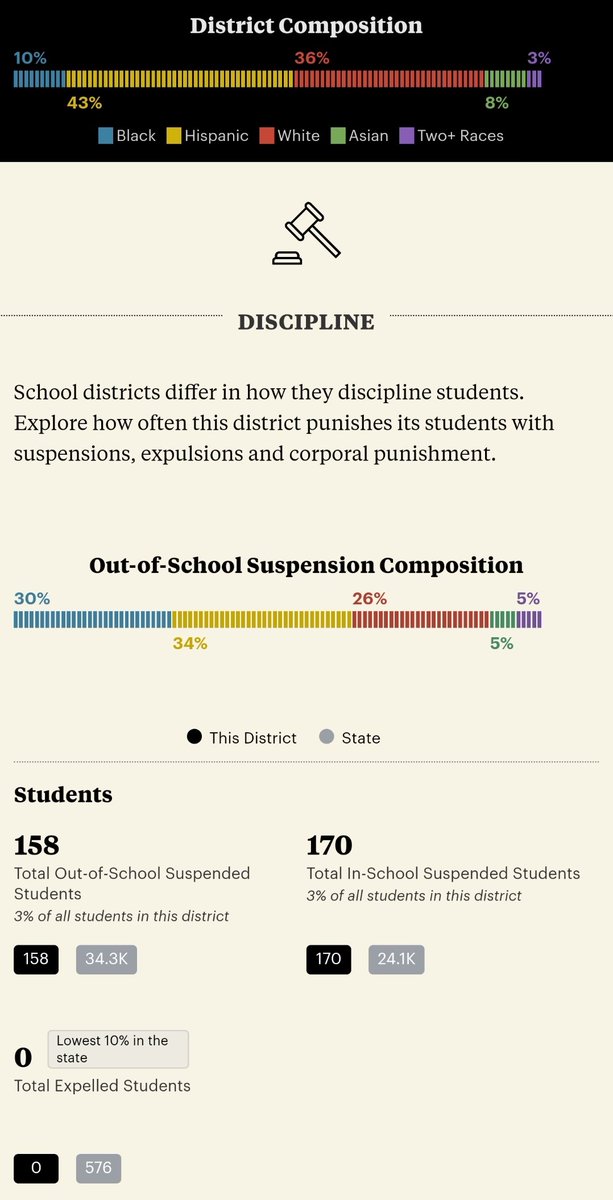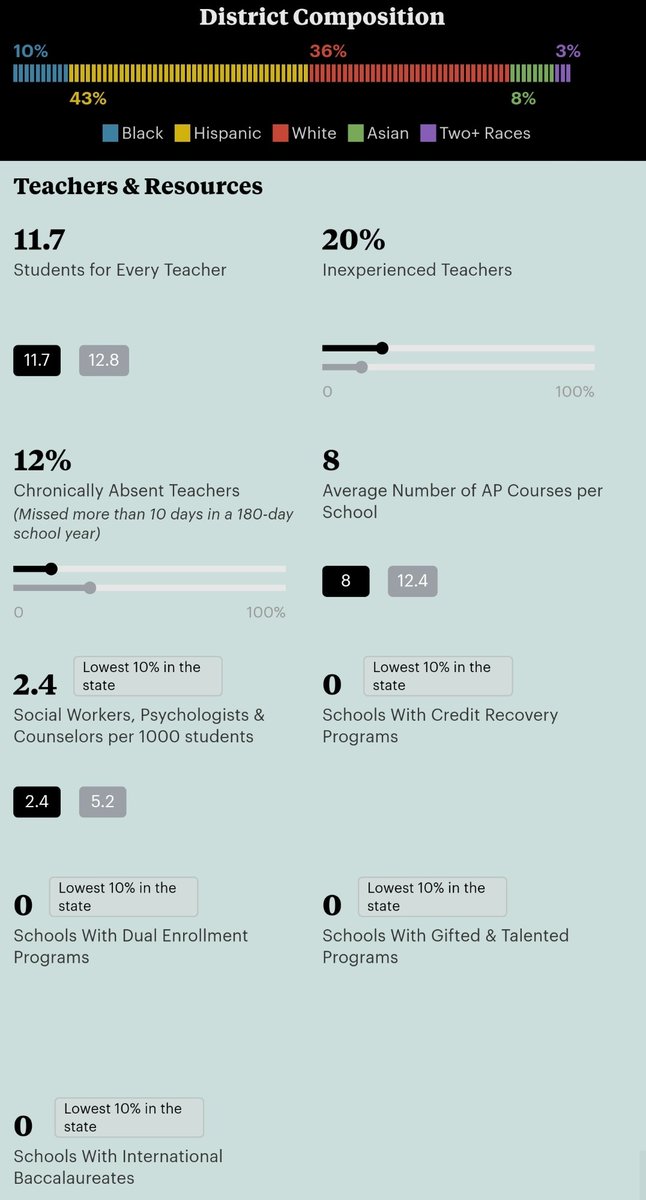A common misconception about abolitionist organizing is that we only care about getting rid of cops or getting rid of prisons. Those are very important(!), but abolition is also about ending the ways in which we racistly police each other outside of those institutions.
Here's one example: if you're a Black student in the Somerville Public School system, you're highly more likely to be singled out for suspension than your peers. More than 3 times as likely as your white peers, according to this @propublica report from 2018.
Many studies, including those done by the @NEAToday, have shown that heightened use of suspensions are correlated with the school-to-prison pipeline. Other studies show that is particularly true for Black students. https://ra.nea.org/business-item/2016-pol-e01-2/
At the same time, while our city pays for cops (security guards or SROs) in our schools, we don't put the same investments into psychologists, counselors, or social workers. In fact, as compared to the rest of the state, we have less than half of these per 1000 students.
Our abolitionist frameworks must be holistic & recognize that the  cause harms in our community beyond physical violence. The way that their bloated budgets impair our ability to invest in the well-being of our students and children is one. Children deserve racial justice. #BLM
cause harms in our community beyond physical violence. The way that their bloated budgets impair our ability to invest in the well-being of our students and children is one. Children deserve racial justice. #BLM
 cause harms in our community beyond physical violence. The way that their bloated budgets impair our ability to invest in the well-being of our students and children is one. Children deserve racial justice. #BLM
cause harms in our community beyond physical violence. The way that their bloated budgets impair our ability to invest in the well-being of our students and children is one. Children deserve racial justice. #BLM

 Read on Twitter
Read on Twitter



